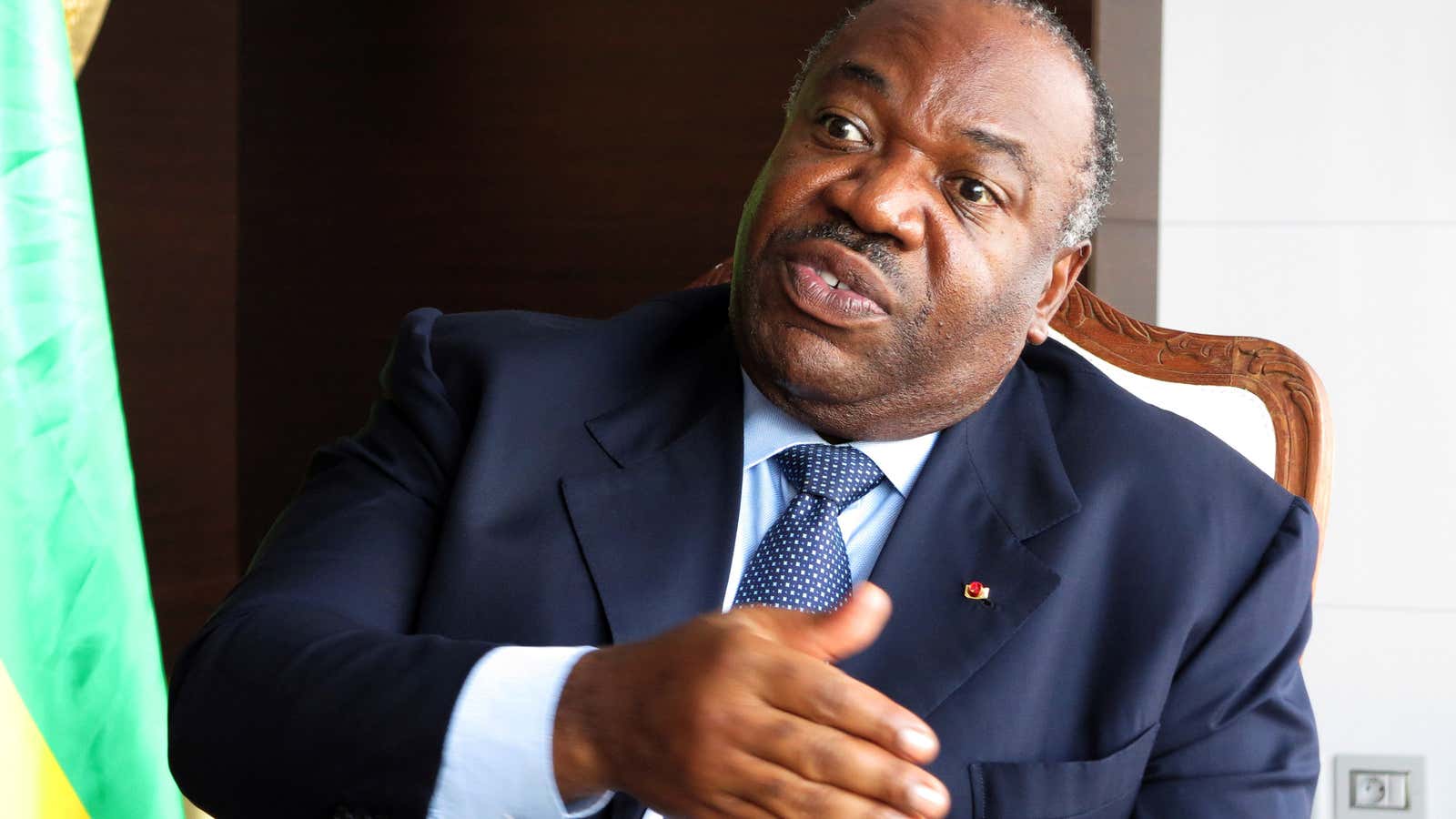After nearly three weeks of an information blackout, Gabon is finally shedding light on the health of its president.
A government spokesperson said president Ali Bongo is “seriously ill” but “in a phase of recovering all his functions” and “has received all the needed support” following spells of vertigo. Bongo was hospitalized at the King Faisal hospital in Riyadh, Saudi Arabia last month where he was attending the Future Investment Initiative conference hosted by the country’s government. Following his admission, the government had claimed Bongo was only under observation due to severe fatigue while reports suggested that Bongo had suffered a stroke instead.
The presidency did not address those reports but said Bongo, 59, had suffered “bleeding which required medical care.” The only sliver of information about the president prior to the official statement had come from Sylvia Bongo, the Gabonese first lady, last week when she thanked citizens for messages of support and prayers, suggesting that the president’s illness was not as simple as the presidency first implied.
The official statement has come after a fortnight of intense speculation over the president’s health among locals and mounting pressure from opposition groups and business leaders. Given the concentration of power in the hands of the president in the oil-rich country, uncertainty over his health has also likely triggered caution among investors. Bongo’s family has ruled the country for half a century as Ali Bongo took over in 2009 following the death of his father, Omar Bongo, who had held power for 42 years.
The ongoing episode over president Bongo’s health is likely all too familiar for Gabonese locals. Nearly a decade ago, former president Omar Bongo passed away in Spain under a shroud of secrecy despite the government’s repeated assurances about his good health. As is usually the case with ailing presidents across Africa, Gabon has tried to control the flow of information since Bongo was hospitalized: last week, it suspended a newspaper for three months for reports suggesting the country was on “autopilot” and could soon appoint an interim president.
Sign up to the Quartz Africa Weekly Brief here for news and analysis on African business, tech and innovation in your inbox
